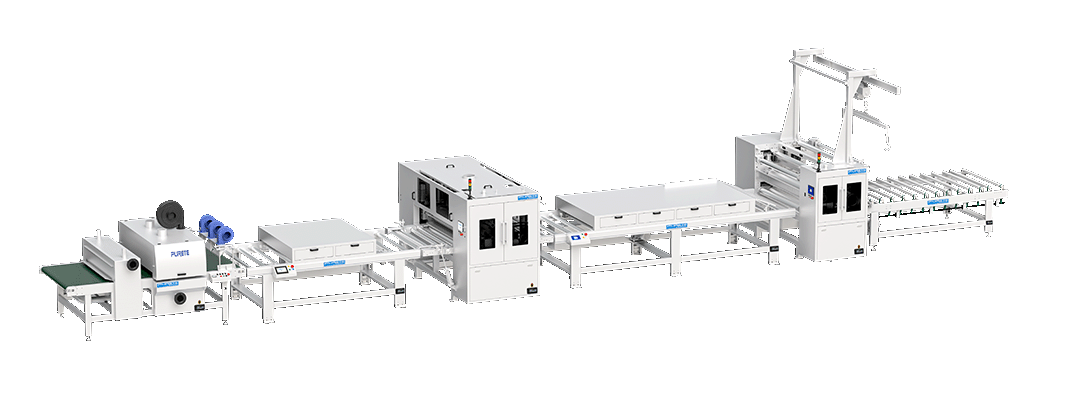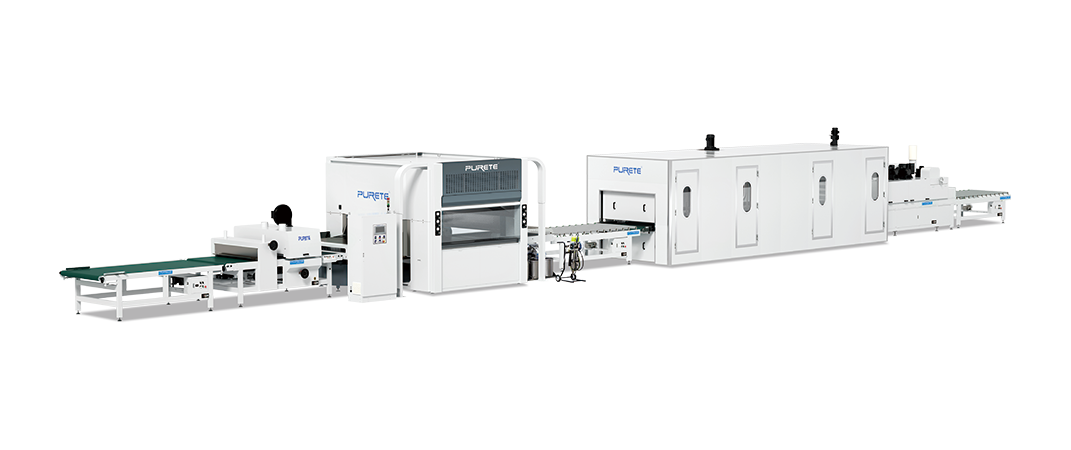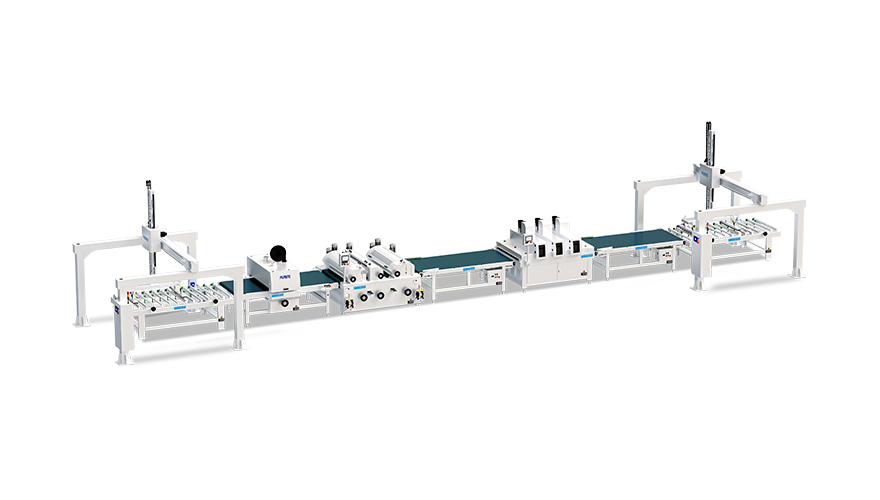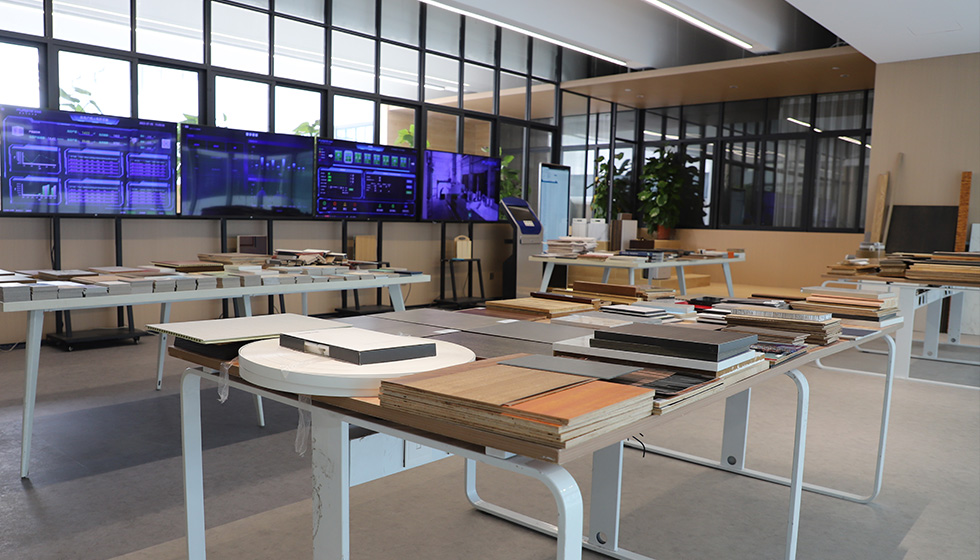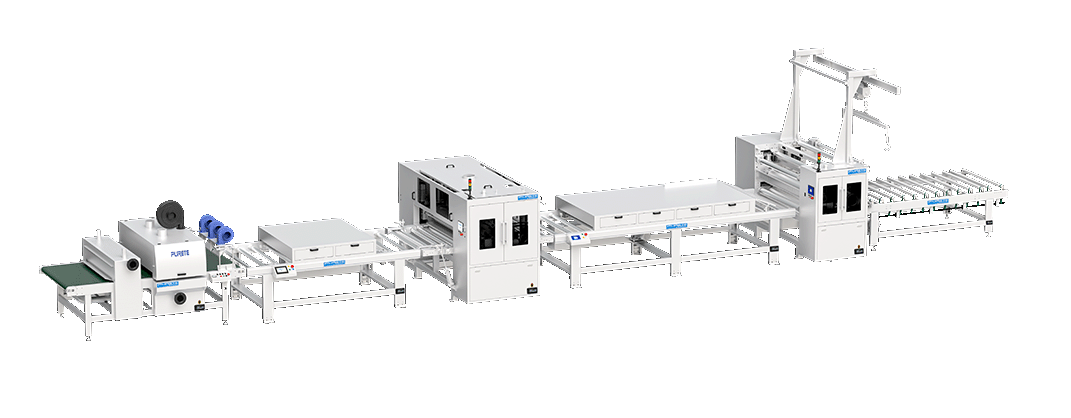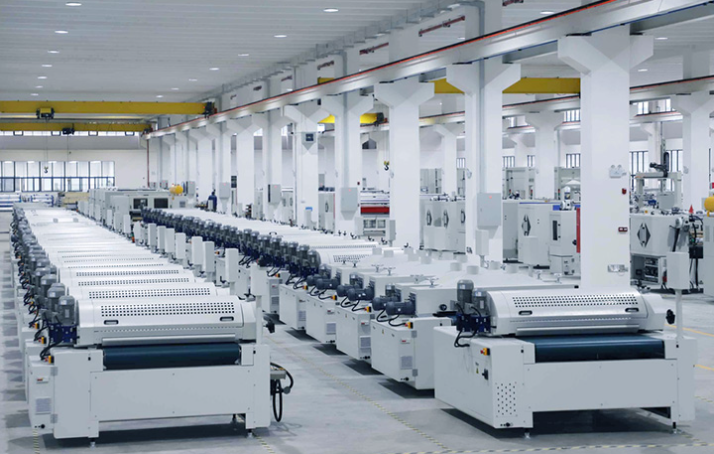What is a Roller Coating Machine?
 April 01, 2025
April 01, 2025 Hits:22second
Hits:22secondA roller coating machine is an advanced industrial device used for applying coatings such as paint, varnish, adhesive, or lacquer onto flat surfaces. This type of coating system is widely utilized in industries like furniture, automotive, construction, packaging, and electronics due to its efficiency, precision, and cost-effectiveness.
1. Working Principle of a Roller Coating Machine
A roller coating machine operates by passing a substrate (such as wood, metal, plastic, or paper) through a series of rollers that evenly apply a coating material. The fundamental components of the machine include:
Coating Rollers: These rollers distribute the coating material uniformly across the substrate’s surface.
Metering Rollers: Control the thickness and evenness of the applied coating.
Conveyor System: Moves the substrate through the machine at a controlled speed.
Drying System: Ensures rapid curing or drying of the applied coating, which can be achieved through heat, UV light, or air circulation.
The process typically involves loading the material onto the conveyor, applying the coating via rollers, and then curing or drying before the material moves to the next production stage.
2. Types of Roller Coating Machines
There are several types of roller coating machines designed for different applications and coating materials:
2.1. Forward Roller Coating Machine
The coating roller and the substrate move in the same direction.
Suitable for thin and even coatings.
Commonly used in furniture and panel production.
2.2. Reverse Roller Coating Machine
The coating roller moves in the opposite direction to the substrate.
Provides a thicker and more controlled application.
Ideal for high-viscosity coatings such as adhesives and protective layers.
2.3. Curtain Roller Coating Machine
Utilizes a curtain of liquid coating that flows onto the moving substrate.
Suitable for high-gloss and uniform coatings on surfaces like glass and metal sheets.
2.4. UV Roller Coating Machine
Applies a UV-curable coating and instantly cures it using ultraviolet light.
Commonly used in high-end furniture, automotive finishes, and electronic products.
3. Applications of Roller Coating Machines
Due to their versatility, roller coating machines are used in various industries, including:
3.1. Wood and Furniture Industry
Used for applying stains, lacquers, and protective coatings on wooden panels, cabinets, and flooring.
Enhances durability and aesthetic appeal.
3.2. Metal Industry
Applies anti-corrosion coatings, paints, and decorative finishes on metal sheets and automotive parts.
Improves resistance to environmental factors.
3.3. Plastic and Electronics Industry
Provides protective and decorative coatings on plastic casings, consumer electronics, and home appliances.
Enhances surface hardness and UV resistance.
3.4. Packaging and Printing Industry
Used for coating paper, cardboard, and flexible packaging materials with varnish or protective layers.
Improves print quality and product longevity.
4. Advantages of Roller Coating Machines
4.1. High Efficiency and Productivity
Enables continuous and automated production processes.
Reduces manual labor and production time.
4.2. Consistent and Uniform Coating
Ensures even application of coatings across large surfaces.
Minimizes defects such as streaks, bubbles, and uneven layers.
4.3. Cost-Effectiveness
Reduces material waste compared to spray coating or dipping methods.
Optimizes coating thickness, leading to savings on raw materials.
4.4. Eco-Friendly Operation
Minimizes overspray and volatile organic compound (VOC) emissions.
Supports water-based and UV-curable coatings, reducing environmental impact.
4.5. Versatility and Customization
Can be adapted for various substrates and coating materials.
Adjustable settings allow precise control of coating thickness and texture.
A roller coating machine is an essential tool in modern manufacturing, providing high efficiency, consistency, and cost savings across multiple industries. With different types available for specific applications, these machines offer superior surface finishing solutions, improving product durability and quality. As industries continue to demand high-performance coatings with minimal environmental impact, roller coating technology will remain a critical asset in advanced production processes.
